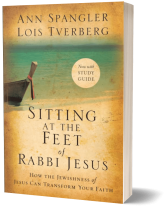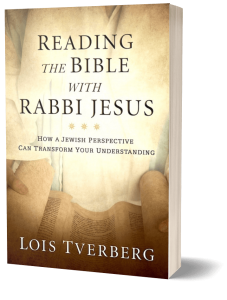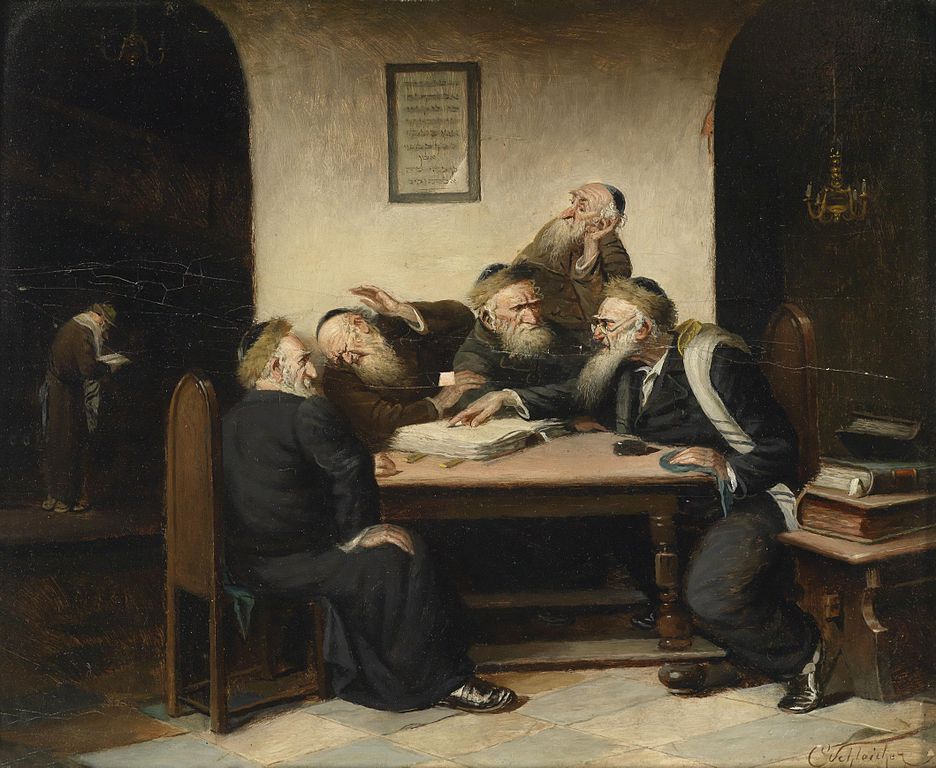Welcome to En-Gedi…
 Featured Article: (from Parables and Stories)
Featured Article: (from Parables and Stories)
A Hot-Tempered Teacher
by Lois Tverberg
“And the Lord’s servant must not quarrel; instead, he must be kind to everyone, able to teach, not resentful. Those who oppose him he must gently instruct, in the hope that God will grant them repentance leading them to a knowledge of the truth.” 2 Timothy 2:24-25
 It is easy when you are passionate about something, especially about God’s Word, to use strong, angry words to shake up your audience. When you see obvious errors online, your urge is to denounce the foolish author by pointing a prophetic finger of rebuke.
It is easy when you are passionate about something, especially about God’s Word, to use strong, angry words to shake up your audience. When you see obvious errors online, your urge is to denounce the foolish author by pointing a prophetic finger of rebuke.
Certainly there’s plenty of arguing online now, religious and non-religious. You might be surprised at what we can learn from rabbinic teachers. They said: “A hot-tempered man cannot teach” (Pirke Avot 2:5). Aimed at those who teach the Scriptures, it was a warning that once a communicator loses his temper, he loses his ability to communicate. A related insight was, “Anyone who allows himself to become angry — if he is wise, he loses all his wisdom” (Talmud, Pesachim 66b).
Consider the damage that occurs when we communicate in anger. We leap to assumptions, assuming the worst about the people we are trying to reach. The street-corner preacher who scolds his audience about their wicked lifestyles has made an accusation that justifiably offends people. He’s presumed the worst and he loses his ability to reach his listeners.
Psychologists talk about the “Idiot Effect.” People can have a disagreement and openly discuss their differences, but at the point when one declares, “The reason you believe that is you’re an idiot!” the other will slam shut the doors of communication and never open them again. When you insult your listeners, you lose them.
 This can be an issue for people when they discover their Jewish roots. They often grumble, “Why wasn’t I ever told this before?” or “Why has the church lost its Jewish heritage?” Some people angrily accuse the church of deliberately withholding information, rather than acting out of ignorance. The latter is much more likely, because the unfortunate split between Jews and Christians goes back to the first few centuries AD.
This can be an issue for people when they discover their Jewish roots. They often grumble, “Why wasn’t I ever told this before?” or “Why has the church lost its Jewish heritage?” Some people angrily accuse the church of deliberately withholding information, rather than acting out of ignorance. The latter is much more likely, because the unfortunate split between Jews and Christians goes back to the first few centuries AD.
Whether you’re trying to share the Gospel with a non-believer or your knowledge about your Jewish roots with your pastor, you need to guard against an argumentative attitude or anger. Know that others are trying to discern the truth just like you are, but they’ve had different sources of information. To be convincing, you need to humbly bridge the gap between their perspective and yours.
~~~~~
 Further reading: Be a Bridge, Not an Island at OurRabbiJesus.com.
Further reading: Be a Bridge, Not an Island at OurRabbiJesus.com.
Also the final chapter of Sitting at the Feet of Rabbi Jesus.
Not Yours to Complete
by Lois Tverberg
“Do you not say, `Four months more and then the harvest’? I tell you, open your eyes and look at the fields! They are ripe for harvest. Even now the reaper draws his wages, even now he harvests the crop for eternal life, so that the sower and the reaper may be glad together. Thus the saying `One sows and another reaps’ is true. I sent you to reap what you have not worked for. Others have done the hard work, and you have reaped the benefits of their labor.” John 4:35-38
Anyone who looks at the world as it is today can see the enormous need for God to send out his people to help redeem it. Enormous numbers of people need to know the gospel, broken families and broken people need help, and the hungry need to be fed. Just hearing about the devastation of an earthquake or tsunami is overwhelming – how can these people ever recover?

A wise saying regarding this comes from the Mishnah:”The task is not yours to complete, but neither are you free to desist from it.” (Pirke Avot 2:21) It means that we should not use the excuse that our help might be futile to decide to do nothing. We might say that our money, time and effort are just drops in an ocean of need — why bother? But as Jesus reminded his disciples in today’s passage, the disciples were building on the work of others who didn’t live to see the finished product of their faithfulness. We reap from others’ efforts, and those following us will reap from ours.
We may despair that there is any point to doing the little things, like sending a few dollars to help with disaster relief, or caring for an elderly neighbor’s needs. Or we may feel like if we discuss our faith with a non-believer but did not “pray the sinner’s prayer,” our efforts are wasted. But Paul says that he planted and another (Apollos) watered, but God gave the growth (1 Cor. 3:6-7). God’s plans are much greater than we could ever imagine, and he only expects each of us to do our part in them. All he asks it that we be faithful in what we are given, and let him work through others to accomplish the rest.
Photo: Trocaire
An Attitude of ‘We’
“The body is a unit, though it is made up of many parts; and though all its parts are many, they form one body. So it is with Christ. For we were all baptized by one Spirit into one body – whether Jews or Greeks, slave or free – and we were all given the one Spirit to drink.” 1 Corinthians 12:12-13

A few years ago when I visited a synagogue as part of a group, we talked with some of the Orthodox Jewish boys who were studying there. They took out the Torah scrolls and we asked them what the reading was for this week. They said, “This week we are reading the story of how God brought us out of Egypt and saved us from the Egyptians.”
It struck me that the boys used the pronoun “us” as if they had been right there crossing the Red Sea. It is common in Jewish culture that when people discuss the Israelites in the Scriptures, they use the pronoun “us,” because their ancestors and they are one people.
We can learn from their example to put ourselves personally into the stories of the Bible as we read. Then when we read about the Israelites rebelling because they were tired of eating manna, we wouldn’t say, “I don’t know why God chose such a whiny people!” but rather, “My people got tired of eating manna – and I would have too because of my own sinful nature. How great of God to have showed such grace to us!”
As Paul said, we are “ingrafted branches” into God’s covenant people, and need to understand our indebtedness and connectedness to God’s people all the way back to 4000 years ago.
We should also remember to focus on our connection with other members of the body of Christ. A few years ago, when the news featured stories on the enormous amount of oppression Christians are facing all over the world, many woke up to the need to pray for our brothers and sisters in the persecuted church. Surprisingly the reporter who discovered this and worked up the story was actually Jewish! Because of his own sense of identity with his people, and his personal sense of woundedness from what was done to the Jews during the Holocaust, he wanted Christians to know what was happening to their “family”!
In modern Western culture, Christians are highly individualistic, and we find it difficult to live together when we focus so completely on our own needs. By thinking more about “we” and less about “I,” we can live out God’s command to love each other as we love ourselves.
Photo: ‘Inyan

For more on this topic, see the chapter, “Reading the Bible as a ‘We’” in Reading the Bible with Rabbi Jesus. (Baker, Grand Rapids, 2018) which is available in the En-Gedi bookstore.
Just Like Yourself
by Lois Tverberg
“You shall not take vengeance, nor bear any grudge against the sons of your people, but you shall love your neighbor as yourself; I am the LORD.”
Leviticus 19:18
 The commonly understood interpretation of “Love your neighbor as yourself” is that we should love others with the same measure that we love ourselves, which is certainly very true. But the rabbis also saw that the Hebrew of that verse can also be read as, “Love your neighbor who is like yourself.” This actually fits the original context of Lev. 19:18 better, “You shall not take vengeance, nor bear any grudge against the sons of your people, but you shall love your neighbor, as/like yourself; I am the LORD.”
The commonly understood interpretation of “Love your neighbor as yourself” is that we should love others with the same measure that we love ourselves, which is certainly very true. But the rabbis also saw that the Hebrew of that verse can also be read as, “Love your neighbor who is like yourself.” This actually fits the original context of Lev. 19:18 better, “You shall not take vengeance, nor bear any grudge against the sons of your people, but you shall love your neighbor, as/like yourself; I am the LORD.”
While either interpretation is valid, their emphasis was less on comparing love of ourselves with love for others, and more on comparing other people to ourselves, and then loving them because they are like us in our own frailties. When we realize that we are guilty of the same sins that others are, we see that we shouldn’t bear grudges against them, but to forgive and love them instead. One wise saying that comes from this is:
Forgive your neighbor’s injustice; then, when you pray, your own sins will be forgiven. Should a person nourish anger against another, and expect healing from the Lord? Should a person refuse mercy to a man like himself, yet seek pardon for his own sins? (28:2-4) (Ben Sira, c. 180 B.C.)
While what we have always understood as Christians about loving our neighbor as ourselves still remains true, the rabbis’ perspective highlights the fact that the time when we need to show love most is when we need to forgive other’s sins against us. In this regard, we can hear the background of the verse of the Lord’s Prayer that says, “Forgive us our sins as we forgive those who sin against us”. We could almost say, “Please love us even though we are sinners, as we love other sinners like ourselves.” Forgiving sins is one of the strongest tests of love — it is easy to love someone who has treated us rightly, but to love someone who has hurt us is far more difficult. God continues to love us even though we sin against him; how much more should we who are sinners love and forgive other sinners like ourselves.
Which Type Are You?
by Lois Tverberg
“A farmer went out to sow his seed. As he was scattering the seed, some fell along the path, and the birds came and ate it up. Some fell on rocky places, where it did not have much soil. It sprang up quickly, because the soil was shallow. But when the sun came up, the plants were scorched, and they withered because they had no root. Other seed fell among thorns, which grew up and choked the plants. Still other seed fell on good soil, where it produced a crop — a hundred, sixty or thirty times what was sown.”
Matthew 13:3-8
To explain how people would receive Jesus’ message, he told a parable about four types of soils, representing four kinds of responses to his ministry. Interestingly, Jesus was using a classic rabbinic teaching method — the “Four Types” parable, that presented four possible behaviors and their results. Other rabbis of Jesus’ day also used parables of this style, as the following example illustrates:
There are four types among those who sit in the presence of the rabbis: the sponge, the funnel, the strainer, and the sieve. “The sponge,” which soaks up everything. “The funnel,” which takes in at this end and lets out at the other. “The strainer,” which lets out the wine and retains the dregs. “The sieve,” which lets the dirt fall through and retains the grain. (Pirke Avot, 5:17)
It is interesting to see how this saying parallels that of Jesus. It is also talking about people who listen to a rabbi, and it is also describing how they remember and respond to his teachings. Our initial reaction may be to think that it is best to be like the sponge which retains everything, and the worst to be the funnel, that loses everything. But the other two options give us more insight. The wine strainer is even worse than the funnel, because it lets the good wine go right through, but retains the waste. The grain sieve is the best model for us, because it retains the good grain and removes the dust and dirt that aren’t wanted.
This parable is a good lesson for us as we learn from pastors and spiritual leaders. With the exception of Christ, all our teachers will have some “dross” in with the silver, which means we must listen with discernment. We might be tempted to find a charismatic leader or authoritative author and become a “parrot” who repeats everything uncritically. Or even worse, we may be so interested in a few odd, debatable points that we miss the good ideas that a teacher has shared. If we want to truly grow in wisdom, we need to be like the Bereans,1 who held up all teaching to the scriptures for soundness. We then need to subject every doctrine to the mind of Christ, to make sure it reflects his loving, gracious heart.
(1) “Now the Bereans were of more noble character than the Thessalonians, for they received the message with great eagerness and examined the Scriptures every day to see if what Paul said was true.” Acts 17:11
Photos: Public Domain; Walters Art Museum / Public domain
In All Circumstances
by Lois Tverberg
Give thanks in all circumstances, for this is God’s will for you in Christ Jesus. (1 Thessalonians 5:18)
In difficult times it is hard to see what God is doing, and we worry that he has lost control of the world or doesn’t care about us. The rabbis had an interesting, wise, but difficult saying that is often said on hearing tragic news:
Gam zo le tovah – Even this is for the good.
 The first time I heard it was from a dear friend in Israel when he had found out that his wife had breast cancer. It is never appropriate as an unsympathetic platitude, but from the lips of a person who is suffering, it is a statement of great faith in God — that even in the worst times, we know that a loving God intends it for good.
The first time I heard it was from a dear friend in Israel when he had found out that his wife had breast cancer. It is never appropriate as an unsympathetic platitude, but from the lips of a person who is suffering, it is a statement of great faith in God — that even in the worst times, we know that a loving God intends it for good.
Paul said that we should give thanks in all circumstances (1 Thessalonians 5:18). Other rabbis said something similar, that we are to “love the Lord your God with all of your heart,” and sometimes our hearts are full of joy, but sometimes full of sadness. To love him with all of our heart, we need to love him both in happiness and sadness. We are to bless the Lord at all times, as in Psalm 34:1: “I will bless the LORD at all times; his praise shall continually be in my mouth.”
Because of this, there is a traditional Jewish prayer for times of grief, when someone dies or when tragic news is heard. It is, “Barukh diyan emet” which means, “Blessed is he who is the true judge” or, “Blessed is he who is truly just.” It is a reminder that God is still good, even in tragedy, and that he will ultimately bring justice where justice doesn’t seem to be present. It also reminds us of God’s sovereignty and his control over all things.
We as Christians have a special reason to know that God is not unconcerned about our difficulties. We know that he has walked on earth as we have, and he has suffered as we do. He was acquainted with grief and familiar with sorrow and pain.
If our difficulties don’t come from our own mistakes, they come from painful circumstances beyond our control. Almost never do we choose them. Christ’ pain, in contrast, was entirely of his own choosing. He willingly took on great hardship and suffering for us, out of the great depths of his love.
Photo: franciso_osorio
Saving a Whole World
by Lois Tverberg
“And He said to them, ‘Is it lawful to do good or to do
harm on the Sabbath, to save a life or to kill?'” Mark 3:4
When Jesus defended his actions about healing on the Sabbath, he used the Jewish legal concept of pikuach nephesh, which literally means “preserving life,” a supreme value to rabbis of his time. The idea was that human life is extremely precious, and that every other law can and must be set aside to save a life. Even though the Sabbath laws were very strict, any one of them could be broken if a life was at stake. There was some debate about what circumstances were considered “life-threatening,” and Jesus was taking part in a discussion about whether improving a person’s life by healing them was considered pikuach nephesh.
 The idea that saving a life is a supreme value may seem second nature to us, but it was without precedent in other ancient cultures. In other lands, many minor crimes were punishable by death, but not in Israel. God had made it clear that since humans were made in his image, we are precious to him. We don’t often contemplate how this singular idea has transformed our entire civilization to the point that it is what makes us “civilized.” Hospitals, orphanages, and charities of all types have arisen our of the belief that human life must be preserved at any cost.
The idea that saving a life is a supreme value may seem second nature to us, but it was without precedent in other ancient cultures. In other lands, many minor crimes were punishable by death, but not in Israel. God had made it clear that since humans were made in his image, we are precious to him. We don’t often contemplate how this singular idea has transformed our entire civilization to the point that it is what makes us “civilized.” Hospitals, orphanages, and charities of all types have arisen our of the belief that human life must be preserved at any cost.
Jews have a profound way of expressing the idea of the preciousness of life that comes from the first case of shedding of innocent blood, Cain’s murder of Abel. God said to Cain,
“The voice of your brother’s blood (bloods, literally) is crying to Me from the ground.” (Gen. 4:10)
The Hebrew word for blood is dam, and the plural is damim. When the Bible talks about murder, or “bloodguilt,” it uses the plural form, damim. Using the logic that the blood contains the life of a person, to speak of blood in the plural implies that a murder doesn’t just take the life of one person, it takes the lives of many. Jews therefore have a tradition that the voice of the “bloods” crying out from the ground was actually the voices of all of the future descendants of Abel that would have ever lived. From this they have a saying, “To take the life of one person is like taking the life of a whole world, and to save the life of one person is like saving a whole world!”
Photo: John Severns
Mercy or Justice? A Rabbinic Parable
“And [the Lord] passed in front of Moses, proclaiming, “The LORD, the LORD, the compassionate and gracious God, slow to anger, abounding in love and faithfulness, maintaining love to thousands, and forgiving wickedness, rebellion and sin. Yet he does not leave the guilty unpunished; he punishes the children and their children for the sin of the fathers to the third and fourth generation.” Exodus 34: 6-7
We struggle with the fact that the Bible portrays God as sometimes forgiving sin, and other times angrily punishing it. Sometimes we over-simplify this to say that the God of the Old Testament was full of judgment, and Jesus was all forgiveness. If you read more closely, you find that neither is the case.
God forgave Israel for worshiping the golden calf, but then forbade Moses, his greatest prophet, from entering the promised land because of his sin in striking the rock.
Likewise, Jesus spoke about the coming judgment more than anyone else in the New Testament, yet he told the woman caught in adultery that her sins had been forgiven. He said, “Woe to you, blind guides!” but later said, “Father, forgive them, for they know not what they do.”
This idea that God displays judgment and other times mercy towards sin was the subject of an interesting rabbinic parable:
In the day that the Lord God made earth and heaven, he said, “This may be compared to a king who had a craftsman make for him an extremely delicate, precious goblet. The king said, ‘If I pour hot liquid into it, it will burst, if I pour ice cold liquid into it, it will crack!’ What did the King do? He mixed the hot and the cold together and poured it into it, and it did not crack.”
Even so did the Holy One, blessed be He, say: “If I create the world on the basis of the attribute of mercy alone, it will be overwhelmed with sin; but if I create it on the basis of the attribute of justice alone, how could the world endure? I will therefore create it with both the attributes of mercy and justice, and may it endure!” (Genesis Rabbah 12:15, adapted* )
 This parable doesn’t use detailed theology to explain why God is merciful sometimes and why he chooses to judge at other times. It merely points out that he needs both in order to reign over his creation while allowing it to survive.
This parable doesn’t use detailed theology to explain why God is merciful sometimes and why he chooses to judge at other times. It merely points out that he needs both in order to reign over his creation while allowing it to survive.
We find that this blend of mercy and justice is often what we deal with in our own lives. Parents struggle with the balance of enforcing rules along with showing grace to their kids—not being too strict, yet not letting kids run wild either. Employers often deal with employees who are not performing and need to decide if they should fire them, or give them another chance. When our spouses do something that hurts us—should we forgive them and let it slide, or bring our hurt and anger to their attention?
You may think that you should always act the same—either you should never let sin go unpunished, or always try to be merciful and forgiving. The reality is that you need to have balance. Even God walks the difficult line between mercy and justice.
Making the right choice for a given situation requires great discernment. It’s comforting to know that we can turn to God when we deal with these questions, because he knows our struggles far beyond what we could ever imagine.
* See http://www.jewishvirtuallibrary.org/jsource/Judaism/Loving.html for more.
Photos: Daniela Crucez
Why Should I Help You?
by Lois Tverberg
“Give, and it will be given to you. They will pour into your lap a good measure-pressed down, shaken together, and running over. For by your standard of measure it will be measured to you in return.” Luke 6:38
We all know the line of the Lord’s Prayer that says, “Forgive us our sins as we forgive those who sin against us.” Jesus often emphasized the idea that the way we treat others is the way God will treat us, and that we should have mercy on others if we want God to have mercy on us. Jesus says that “with the measure you use, it will be measured out to you.” (Luke 6:38)
 This idea of “measure for measure,” expecting God to treat us as we treat others, has been a part of Jewish culture ever since Jesus’ time. One 18th century rabbi had an interesting spin on it, saying:
This idea of “measure for measure,” expecting God to treat us as we treat others, has been a part of Jewish culture ever since Jesus’ time. One 18th century rabbi had an interesting spin on it, saying:
“When a poor man asks you for aid, do not use his faults as an excuse for not helping him. For then God will look for your offenses and he is sure to find many. (1)
This is very convicting. When a person is experiencing hardship, the first thing we wonder is whether they brought it on themselves. It’s easy to respond, “Well, you made your bed, now lie in it!” But who among us has not screwed up something important in our lives? A person may have lost a job or destroyed a marriage by irresponsible behavior, but it doesn’t mean that we can’t help them nonetheless.
What an interesting challenge — that instead of acting as judge upon the way others run their lives, our first thought should be how to help them. Certainly, we need to have discernment about being an enabler to a person who needs to change how they live. But knowing that a person has faults should not harden us to trying to care for them. Otherwise, the next time we beg the Lord for help we might hear him reply, “You brought your problems on yourself – why should I help you?”
(1) Rabbi Shmelke of Nikolsberg, (d. 1778), quoted in Jewish Wisdom, by J. Telushkin, (c) 1994, Morrow and Co., p. 15.
Photo: Rick Hunter
Who is Wise?
by Lois Tverberg
“While Paul was waiting for them in Athens, he was greatly distressed to see that the city was full of idols. So he reasoned in the synagogue with the Jews and the God-fearing Greeks, as well as in the marketplace day by day with those who happened to be there. …Paul stood up in the meeting of the Areopagus and said: “Men of Athens! I see that in every way you are very religious…” Acts 17:16-17, 22
From Jesus’ time until now, in Jewish culture it has been customary to confront, discuss and even argue with those whom you disagree. We might think that every difficult question asked of Jesus was to antagonize or trap him, but debating with a respected rabbi was a common practice in his culture. Because of the emphasis on argumentation, rabbis had some wisdom about how to deal with those whom you disagree.
They had a saying — “Who is wise? He who learns from all others.” (1) The idea is that a person can always learn from another person’s perspective, even those with whom he disagrees. We see this in the life of Paul – that he didn’t just walk away from the Jews who didn’t believe in the gospel, but spent time reasoning about the Way in the synagogue. And, with Gentiles, even though Paul was offended by their many gods, he learned enough about their beliefs in order to compliment their “great religiousness” and speak as if the true God was the “unknown God” to whom the Athenians had set up a shrine among their many altars. Because he had learned from both groups about their perspective, he was a powerfully effective evangelist.
Two debating rabbinic groups existed during Jesus’ time, the disciples of Rabbi Hillel and the disciples of Rabbi Shammai. Both had good insights, but ultimately the opinions of Hillel won out. Why? Because the Shammaites presented their views as absolute answers and ignored those of Hillel, while the Hillelites studied both sides, and then presented Shammai’s opinions before giving their own. Because they considered both sides, they had greater intellectual depth in their reasoning, and their opinions won the day. (2)

This should cause us to look at the way we live today. Do we read and listen to opinions with which we disagree, or do we hide in our own political bubble? Do we know about the religious beliefs of our neighbors, including why they disagree with our own?
Learning as much as we can keeps us from becoming intellectually flabby, and should keep us from unkindness and arrogance. Study allows us to better explain the opinions that we hold, and enables us to better share the hope that we have in Christ.
(1) Mishnah, Pirke Avot 4:1, Ben Zoma.
(2) The Book of Jewish Values, by J. Telushkin, ISBN 0609603302 (c) 2000, Bell Tower, New York, p. 186-187.
Photo: Dorotheum
We’re pleased to be able to share this difficult-to-find classic by Brad Young. Check it out!
The Jewish Background to the Lord’s Prayer
by Brad H. Young
© 1984, Gospel Research Foundation Inc.
Softcover, 46 pages, $8.99
- Explore the Jewish roots of the Lord’s Prayer
- Learn how the Dead Sea Scrolls, rabbinic literature, Jewish prayers, and worship breathe fresh meaning into the revered words of the Lord’s Prayer
- Understand Jesus’ powerful prayer better in the light of Jewish faith and practice
Dr. Brad H. Young (PhD Hebrew University, under David Flusser) is the founder and president of the Gospel Research Foundation in Tulsa, Oklahoma. He is emeritus professor of Biblical Literature in Judaic-Christian Studies in the Graduate School of Theology at Oral Roberts University. Young has taught advanced language and translation courses as well as the Jewish foundations of early Christianity to graduate students for over thirty years.
Check out what else is available from the En-Gedi Resource Center bookstore too…



